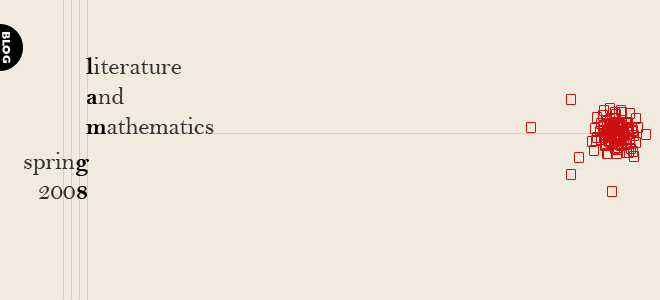The same thoughts and ideas just keep popping into my head or coming up in what ever i do. During yesterday's class we talked about words and languages in VAS. All the things we talked about just overlapped with more ideas that have been following me for a while, for example when i was preparing to write my History paper i read a quote from a Cheyenne Native American which said
" We need our land and we need our language. The two are inseparable".
This gives a lot of power to language, which is often very faulty. Take for example this conversation i had with my girlfriend about love. "Love" is such a restricting word. there is only one word and yet it is supposed to be used many different ways(i.e. for you friends, family, dog, house, significant other...). All of these are very different forms of love and yet we have only one word. When i do think of this i refer to the bible often, not because i am super religious or anything, but because of the language it was originally written in ( some sort of Greek). So in this form of Greek there are four words for love: Storge, eros, phylios, and agape. I also thought of this in class when someone referred to that Native tribe that just had two words for color opposed to the more advanced peoples nine ( just for an example). It just leads me to think the more advanced a people and their understanding is then the more advanced or more wordy their language is. So i assume the Greeks are just better than us at certain things, like love.
What also caught my ear during class is the way that we are capable of comprehending things and how that affects how we then see those things.
Whether this is really true or not, i can still read it so it means something to me. When ideas or letters or numbers are all scrambled up people have a hard time making it have a meaning. Being a cartoon nerd i always think of Bender from Futurama when something is a bit confusing until i flip it around. In one episode Bender, being a robot, reads a line a binary and declares it jibberish, but when he turns around and reads it in a mirror then he becomes afraid of the message. It also happens in math. there are certain sequences that you just have to know the trick to understand, like the fibonacci sequence ( 1 1 2 3 5 8 13 21 34 ...). Most of VAS is like this, or at least i think it is. On the first read through i was really confused on why certain parts were there and how they would fit into the book. Now that we are done some of these are making more sense, while others may need another read through. Now that we know where everything is going we can figure out how we got there.Aoccdrnig to a rscheearch at Cmabrigde Uinervtisy, it deosn't mttaer inwaht oredr the ltteers in a wrod are... the olny iprmoetnt tihng is taht the frist and lsat ltteer be at the rghit pclae.
The rset can be a total mses and you can sitll raed it wouthit porbelm.
Tihs is bcuseae the huamn mnid deos not raed ervey lteter by istlef, but the wrod as a wlohe.
So language can be anything that has some meaning behind it ( or at least that is what we said in class) therefore silence can be a language...
... i wonder what that meant to you.
Oh, and if futurama can teach you anything it is that God speaks in binary so make sure and brush up on it before you decide to kick the can.

2 comments:
The English vocabulary is rather large. I think we limit ourselves to a certain subset of it though. The word love is not very descriptive by itself. I think we mostly use it to convey a contextual meaning.Ex: "I love that chair" and "I dont love you anymore" are two sentences with profoundly different consequences.
The mixed up words thing is really interesting. The only time it doesn't work is if you invert the internal letters of a word. Troferehe secnetnes salimir to tihs rleray raed cltcerroy.
Post a Comment